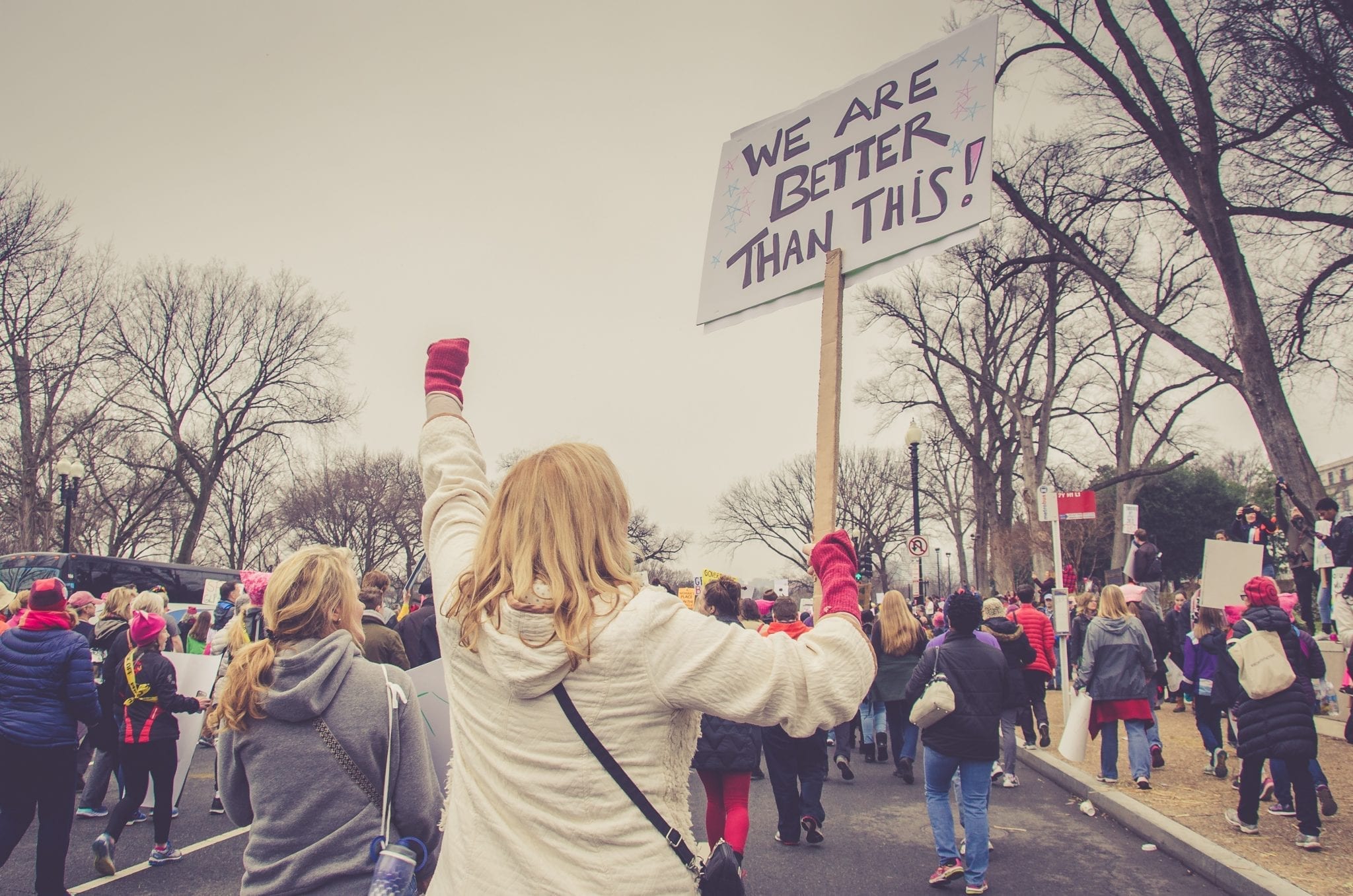If you want a better nation, be better citizens. We can start by bringing honesty to conversations and challenging ourselves with uncomfortable viewpoints.
“If you want a better nation, be better citizens.” -Jim Wright, Stonekettle Station
If there’s one thing that a multitude of Americans are disgusted with these days, it’s endless political bickering, isn’t it? The nonsense spouted by out-of-touch politicians, the opposition’s (accidental or motivated) ignorance surrounding crucial issues, and the shrill bleating of the media are nearly inescapable. At the same time, it feels like we’re under constant attack from the other side. Politics divides families, friends, and citizens, all of whom are peering across the aisle, wondering how the folks over there could want, in their heart of hearts, to injure so grievously the people and country they claim to love.
When people feel attacked, they hit back. The backlash feels like an aggressive strike at the other side, and the cycle continues. Our national conversations metastasize into hyperpartisan proxy wars as tribal identities outweigh reason and evidence. It becomes impossible to back down from any position, no matter how outrageous, as giving ground in compromise or admitting that someone else may have a worthwhile point feels like surrendering to the enemy, and it would be treated as such, with cries of victory from the opposite camp.
At times, the struggle is overwhelming. It’s bigger than we are, and it seems like individuals can’t affect the forces in motion around us. Like this writer, we are sick of the fighting and it’s tempting to check out of the fray entirely. Unfortunately, though, a nation of disconnected, uninvolved people who gave up is not a nation that’s going to save itself.
What can we do about the convergence of these problems? The short answer: be better citizens.
The very first step towards defusing the madness right now is to bring your honesty to the table. Two national media outlets recently made this bold move on the same day, in unrelated articles.
First, the National Review took their readership to task for an epidemic of dishonesty on the right. In the culture war, it’s easy to feel that the ends justify the means, but to be better citizens, we have to hold ourselves to a higher standard. As they point out, lying is wrong anyway, but those in the news media have a special responsibility to be scrupulous truth-tellers. Additionally, they point out that “when people get used to hearing prominent conservatives lying about their opponents, it makes it easier for honest and fair-minded people to dismiss conservative arguments and conservative claims out of hand.”
Indeed.

Then, the New York Times printed a speech delivered by Bret Stephens at the University of Michigan concerning free speech and the necessity of discomfort. Traditional revenue streams have been drying up for media outlets as more people can read more of what they want (and less of what they need) online. That means less funding for the kind of investigative reporting that informs and challenges us, and more of the sort of revenue-generating clickbait that can successfully propagate itself by provoking partisan outrage or stoking our confirmation bias. How can we be better citizens unless we’re willing to engage with ideas that may be uncomfortable, but which help us to become more familiar with all the facets of our complex world? All too often, people reject growth opportunities out of hand, preferring instead to “unsubscribe” or howl in offense. Nobody wins then, save for the purveyors of trash talk.
Both the National Review and New York Times pieces push us to be better citizens in ways that would improve the body politic. Refusing to pass along disinformation (and calling out those from our own side who do), challenging our own viewpoints through robust self-education and radical empathy, and realizing that our perspective is merely a product of our own life experiences and that perfectly valid reasons for dissent exist, are things all of us can do to make our nation more civil and sane in these trying times.
Not easy, perhaps, but possible. And in the years ahead, we’ll need all hands on deck to make it work. Even yours.
Related: Whose job is it to protest, anyway?
Sources:
An Epidemic of Dishonesty on the Right


Join the conversation!